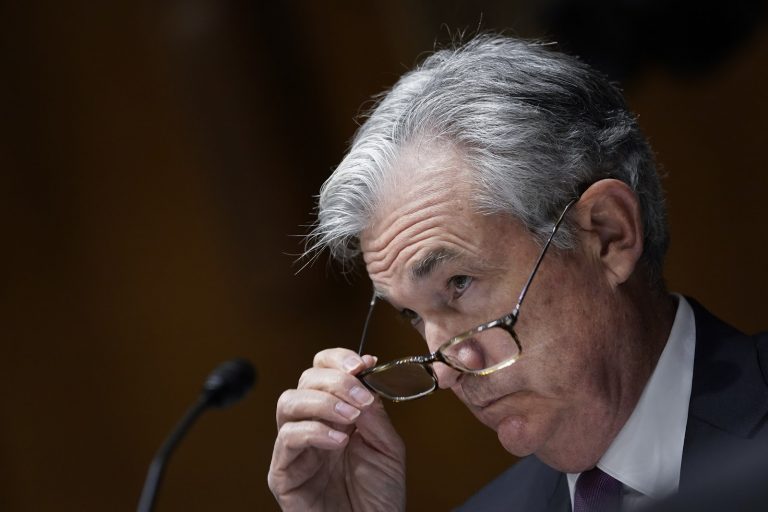Federal Reserve Chair Jerome Powell declined to take a stance on President Biden’s proposed $1.9 trillion coronavirus relief bill while testifying in front of the Senate Banking Committee. When Republican Senator John Kennedy asked whether he would be “cool” if Congress does not pass the bill, Powell chose not to answer the question.
During the testimony, the Fed chair said that there is a long way to go before the economy can make a full recovery from the damage dealt by the pandemic. He added that the recovery process will be uncertain. He assured that the Federal Reserve would continue supporting the American economy through the large-scale purchase of bonds and maintaining low-interest rates until enough progress is made. He said that the labor market is smaller by ten million jobs than pre-pandemic levels.

Powell dismissed the inflation risk, arguing that prices will not keep rising beyond the Fed’s target. Inflation is a key concern for many critics of the $1.9 trillion pandemic aid package. They warn that the cash injected into the economy will boost inflation, making everything pricier and pushing more Americans into financial difficulty. In recent years, inflation has remained below the two-percent target, which the Federal Reserve believes is optimal for economic growth.
In a House Financial Services Committee hearing, Powell said that prices could rise in the coming months as the stimulus measures kick in and the economy reopens. However, he noted this would only be a temporary effect.
“While you could see prices move up, that’s a different thing from persistent high inflation which, if we did get, we have the tools to deal with… We know that inflation dynamics evolve over time, but they don’t tend to change overnight,” he said in a statement.
Success
You are now signed up for our newsletter
Success
Check your email to complete sign up
Biden’s $1.9-trillion package anticipates a full vote
Biden’s $1.9-trillion package has been passed by the House Budget Committee and awaits a full vote from the House, which will happen this week. The Democrat-led House is expected to pass the bill even though there is strong Republican opposition. The bill will then go to the Senate, where Democrats might make some changes to get it past budget restrictions.
One key point of contention in the bill is the proposal to hike the minimum wage to $15 per hour. While Democrats argue that the hike is necessary to give ordinary Americans a decent living wage, Republicans warn that the wage increase will only result in job loss and harm low-wage earners.
State relief measures
While the federal government is trying to pass the pandemic relief bill, several states are implementing such relief measures on their own. In California, lawmakers have passed a bill that will provide almost six million Californians with $600 in direct payments.
“People are hungry and hurting, and businesses our communities have loved for decades are at risk of closing their doors. We are at a critical moment, and I’m proud we were able to come together to get Californians some needed relief,” state Senate President pro-Tempore Democrat Toni Atkins said in a statement.
In New Mexico, a proposed bill aims to provide $200 million in direct grants to businesses that can use the funds to pay for mortgages and rent. A $600 tax rebate to low-wage workers is also under consideration.
Maryland’s local government distributes direct stimulus checks as part of a $1 billion relief program. In North Carolina, a proposal aims to use $695 million to support teachers, law enforcement officers, and small businesses.
















